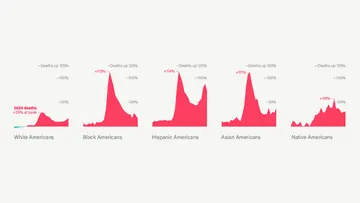In the wake of the Michael Brown shooting last summer, broad (and rare) consensus emerged in support of a tangible reform to policing practices: advocates, legislators, and even many officers themselves endorsed equipping cops with body cameras. Enthusiasm for the technology, touted as a source of accountability among police and — if necessary — a source of authority about police, reached its peak in December, when the White House announced it would allocate $263 million to buy 50,000 cameras for use nationwide.
Almost instantly, skeptics pounced. NPR assessed the “drawbacks” of body cameras, pointing out that the much-cited research on their effectiveness — a study of California cops that found the use of cameras reduced incidents of excessive force by 50 percent — was hardly definitive. The author of the study admitted that its limited scope meant that the results “could be a fluke.”
That wariness only intensified after a grand jury investigating the choking death of Eric Garner declined to indict the cop responsible, even though jurors had been presented with cell-phone footage of the incident. Video evidence, it seemed, was not as incontrovertible as many had hoped and some had claimed. Rep. Bennie Thompson (D-Miss) bluntly stated the implications of the verdict: "It brings into question whether body cameras will make any difference.”
And yet with federal funding and public approval secured — an end-of-year poll by the Washington Post found that 86 percent of Americans were in favor of mandatory use of body cameras by police — more and more departments have adopted the technology. It is estimated that one in six police officers now use cameras.
The nature of the debate surrounding them has evolved, too. The urgent question now is not who will use the cameras, but who will be allowed to see the footage.
Perhaps unsurprisingly, some of the concern has come from the police; some officers are worried that technology will encroach on their privacy. But criticism is hardly limited to those wearing the cameras — potential subjects and viewers of the footage have raised their own questions about the technology. Steven Edwards, a Justice Department policy adviser, gestured toward complicated issues of ownership and storage. “Five years from now, how will this data be used?” he asked.
Writing in Mother Jones, Kevin Drum suggested a formula for navigating these grey area, arguing that police shouldn’t be in charge of granting or barring access — but that citizens shouldn’t have total control over footage either, even if they are in it. In The Atlantic, Conor Friedersdorf spun hypotheticals to make these dilemmas plain. What if a woman alleges being strip-searched by a police officer? Should she have access to videotape of the encounter? Should the cop? Should the public? What sort of access should reporters and researchers have?
As legislators set out to refine reform, their solutions so far err on the side of tightening the official grip on the footage.
Legislation proposed in Minnesota illustrates one of the most stringent approaches. It blocks public access to all video and disposes of any footage not under investigation. The bill, proposed by three lawmakers who are former cops, is intended as a protective measure for police as they adjust to a new reality of self-surveillance.
A police spokeswoman in Flagstaff, Arizona, said one of the most troublesome hurdles is managing the footage. Because clipping footage would amount to tampering with evidence, considerable bureaucracy is entailed just to redact a bathroom break inadvertently caught on tape. There are, of course, more serious invasions of privacy. A cop might witness a domestic violence dispute, or accompany a victim on a hospital visit. And if an officer is filming, the camera witnesses it, too — documenting a private moment that could eventually become public.
Legislators often cite these issues when proposing clearer and stronger guidelines for body-camera use. But they are also driven by practical concerns: processing video requires considerable time and money.
In Washington State, a logistical nightmare drove home the need to codify rules about body-camera footage. In September, a records request for “any and all video” filmed by Washington State police stretched departments beyond capacity. The Washington State Patrol said it would take 42 years for two people to properly redact the video for release. In Seattle, police were more forthcoming, pledging to release as much footage as mandated by public-records law. They dealt with the labor-intensive process by hosting a “hackathon,” recruiting programmers to design speedier redaction tools.
The state as a whole is also considering a legislative solution. One bill under consideration, backed by the ACLU and proposed by state Democrats, would only keep footage related to incidents under investigation, which could then be requested like any other public document. Other mundane footage — presumably the majority of video captured by cameras that run continuously — could only be released if everyone who appears in it consents. Such footage would be tossed out after 75 days.
But a second bill, supported by sheriffs and police chiefs, would more aggressively curtail access to video. Under this legislation, individuals could freely access any footage in which they appeared — but would have to get court approval to view any other video. That would, for example, make it much harder for interested media to obtain footage. Whereas the ACLU-backed bill endorses constant filming (with the exception of bathroom and other breaks), this law would allow each police department to craft its own rules about when cameras must be turned on.
In Missouri, legislators are considering two bills that address access to police-recorded footage, both of which aim to keep videos more closely under wraps. At the end of January, Democratic State Attorney General Chris Koster issued a public letter calling for “conservative decisions” when negotiating access to footage. He proposed carving out an exception to the state’s sunshine laws in order to prevent “unfettered” media access and forestall “a new era of voyeurism and entertainment television at the expense of Missourians’ privacy.”
Both bills under consideration, proposed just days after Koster’s statement, appear to heed this call. The first bill, sponsored by Republican Galen Higdon, calls for making camera footage “inaccessible to the general public,” though Higdon specified that this stipulation would only apply during the police investigation. Another bill gives additional autonomy to police departments, allowing them to opt out of using body cameras altogether.
In Los Angeles, Mayor Eric Garcetti has taken the opposite approach. In December, he pledged to buy 7,000 body cameras, enough to equip all of the city’s law enforcement officers. The policy is one of the largest experiments of its kind — and, in turn, perhaps one most urgently in need of regulation.
California as a whole has been a testing ground for regulating access. In San Diego, the precedent set by police Chief Shelley Zimmerman favors restraint. Her department denied media requests, because it categorizes video footage as evidence, which is shielded from public view. In contrast, Oakland officials develop policy about their footage on a case-by-case basis.
Los Angeles has yet to establish its own rules, but statements by Police Chief Charlie Beck suggest that he, too, may lean towards discretion. His concern about privacy, however, has focused largely on the victims of crime, not on the cops who encounter them. “Families call us when they're in crisis,” he said in an interview. “Victims call us when they've had horrific things done to them by evil people. To make those things public re-victimizes them and doesn't serve justice."

